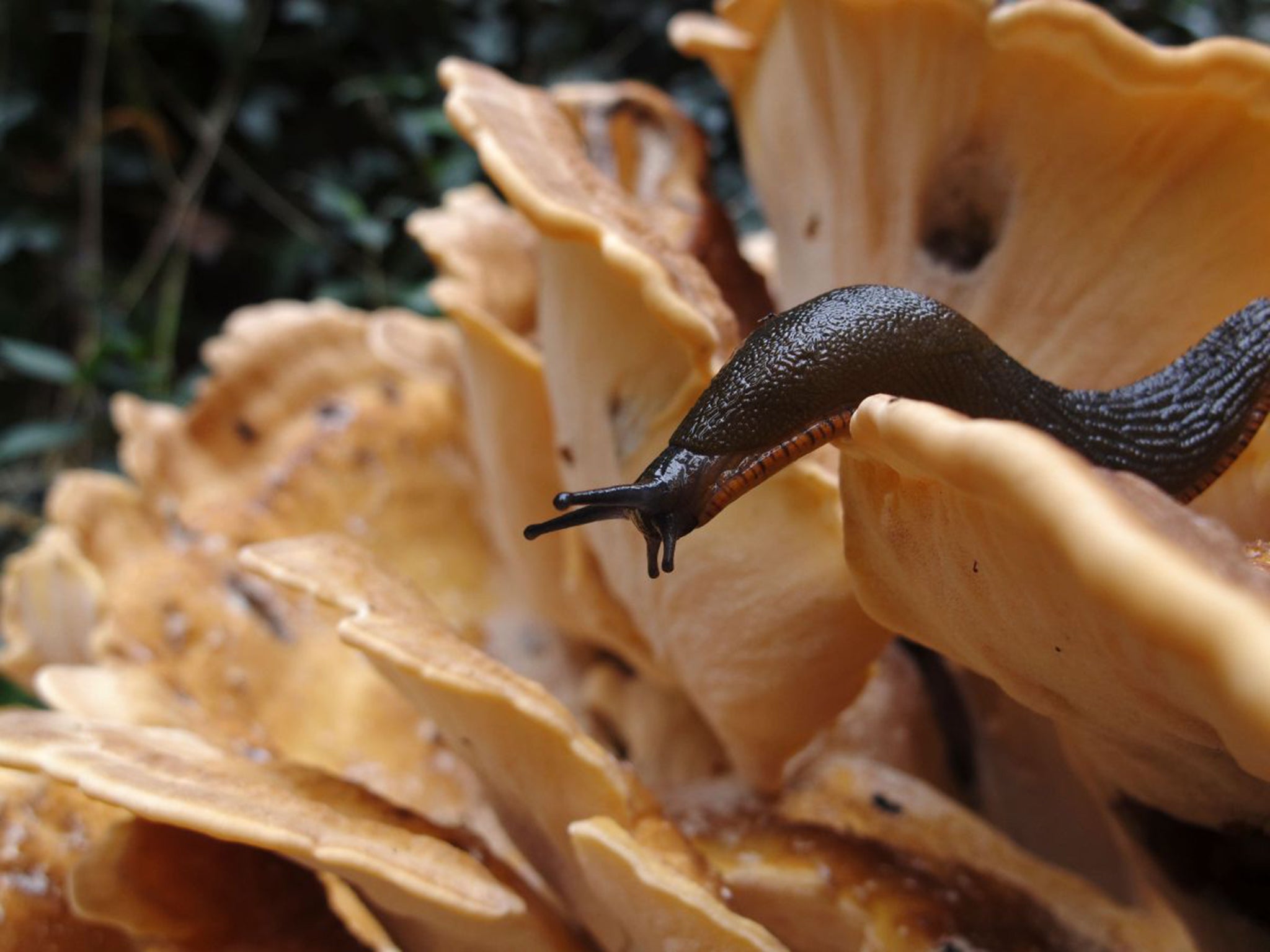All popular methods to keep slugs and snails out of gardens don't work, study finds
Copper tape, horticultural grit, bark mulch, egg shells and wool pellets all ineffective, says Royal Horticultural Society

Your support helps us to tell the story
From reproductive rights to climate change to Big Tech, The Independent is on the ground when the story is developing. Whether it's investigating the financials of Elon Musk's pro-Trump PAC or producing our latest documentary, 'The A Word', which shines a light on the American women fighting for reproductive rights, we know how important it is to parse out the facts from the messaging.
At such a critical moment in US history, we need reporters on the ground. Your donation allows us to keep sending journalists to speak to both sides of the story.
The Independent is trusted by Americans across the entire political spectrum. And unlike many other quality news outlets, we choose not to lock Americans out of our reporting and analysis with paywalls. We believe quality journalism should be available to everyone, paid for by those who can afford it.
Your support makes all the difference.It has been the go-to solution for generations of gardeners hoping to stop slugs and snails devouring their vegetable patches.
But it seems spreading eggshells to prevent these ghastly gastropods may have one slight problem: it doesn’t work.
Other natural methods including laying copper tape, horticultural grit, bark mulch and wool pellets have also been found to be ineffective in a new study by the Royal Horticultural Society.
Slugs and snails did the same damage to lettuces protected with such methods as they did to those left untreated, the research found.
It is thought such solutions may be ineffective because the thick mucus of the molluscs enables them to glide over these apparently sharp barriers.
But Dr Hayley Jones, lead researcher, said: “With the likes of eggshells, barks and mulch so far proving no discernible deterrent to slugs and snails, we would recommend using proven formulas like nematode biological control if the damage is just too much to bear.”
The methods were tested on 108 lettuces sown in pots and raised beds at the RHS field research facility in Wisley, Surrey. After six weeks, the leaves of each harvested lettuce were examined to calculate damage.
Those planted in the ground were found to be more susceptible to slugs, with 5.7 per cent each eaten on average. This compares to just 0.2 per cent of those in pots, which, despite this advantage, yielded less crop. But deterrents were deemed to have no discernible effect.
Dr Jones said: “Slug pellets do have their problems but they have been tested for safety and when used to their manufacturers’ instructions the risks are quite minimal.
"It becomes dangerous for pets and other wildlife when they are over applied.”
Previous research revealed that gardeners who handpick slugs and snails from their vegetables must dispatch them more than 20 metres away, because otherwise a homing instinct helps them return.
Dr Jones said of this method: “It is time-consuming but it is definitely the most environmentally friendly way to go about it.”
Join our commenting forum
Join thought-provoking conversations, follow other Independent readers and see their replies
0Comments